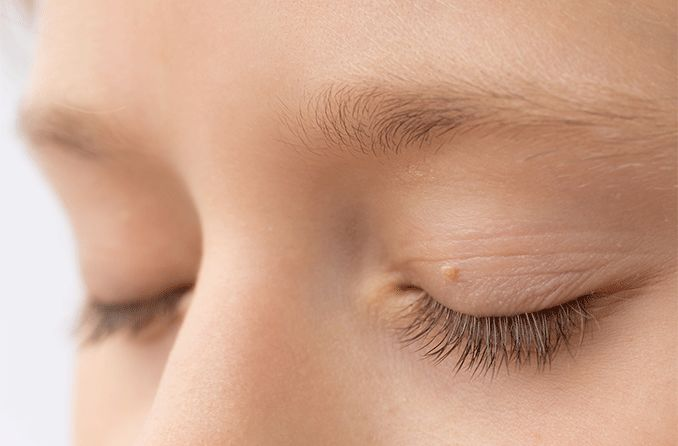Everything You Need to Know About Removing Eye Skin Tags

Skin tags, small benign tumors that typically form in areas where the skin folds, can also appear around the eyes, leading to cosmetic and comfort concerns. While these growths are usually harmless, their location can make them particularly bothersome. This comprehensive guide explores the essentials of removing eye skin tags, from understanding what they are to professional removal techniques and aftercare.
Understanding Eye Skin Tags
Eye skin tags are soft, small flaps of skin that may appear on the eyelids or under the eye. These growths are composed of loose collagen fibers and blood vessels surrounded by skin. Although skin tags are non-cancerous and generally painless, their appearance near such a sensitive area can prompt considerations for removal, especially if they cause irritation or interfere with vision.
Causes and Risk Factors
The exact causes of skin tags are not known, but several factors may increase the risk of developing them, including genetics, friction from skin rubbing, and hormonal changes. People with diabetes or those who are overweight may also be more susceptible.
Symptoms and Identification
Typically, eye skin tags are flesh-colored or slightly darker and vary in size from a pinpoint to the size of a grape. They are attached to the skin by a small, thin stalk called a peduncle.
When to Consider Removal
While eye skin tags are mostly harmless, you might consider removing them if:
- They cause discomfort or irritation.
- They affect your self-esteem due to their appearance.
- They interfere with vision or the fit of glasses.
Professional Removal Techniques
Professional treatment is the safest option for removing eye skin tag due to the delicate nature of the surrounding area. Common methods include:
Cryotherapy
Cryotherapy involves freezing the skin tag with liquid nitrogen. This method is quick and effective, typically causing the tag to fall off within a week or two.
Excision
A doctor may use a scalpel or scissors to cut the skin tag off. This method is usually immediate but might require local anesthesia.
Cauterization
This technique burns the skin tag off using electrolysis. The heat helps seal the wound, preventing bleeding.
Home Remedies and Over-the-Counter Solutions
There are several home remedies and over-the-counter (OTC) solutions available, but caution is advised, especially near the sensitive eye area. These methods include:
- Tea tree oil application, which is thought to dry out the skin tag.
- Over-the-counter freezing kits, although these are less precise than professional treatments and can cause damage to surrounding skin if not used correctly.
It’s advisable to consult with a healthcare professional before trying home remedies for removing eye skin tags.
Aftercare and Healing
Post-removal care is crucial to ensure proper healing and prevent infection. Keep the area clean and dry, and apply an antibiotic ointment if recommended by your doctor. Avoid exposing the area to direct sunlight and use gentle, hypoallergenic products to avoid irritation.
Consulting with a Professional
Given the proximity to the eyes, it is recommended to consult with a dermatologist or an ophthalmologist for skin tag removal. These professionals can provide advice tailored to your specific condition and ensure safe and effective treatment.
Conclusion
Removing eye skin tags can significantly improve your comfort and confidence, particularly when performed safely under professional guidance. Understanding the nature of skin tags and considering all available treatment options will help you make an informed decision about whether and how to proceed with removal. Remember, when it comes to any procedures involving your eyes, professional advice is not just recommended; it is crucial.



